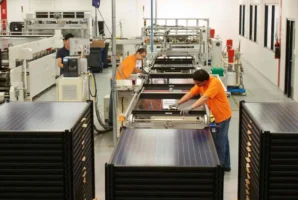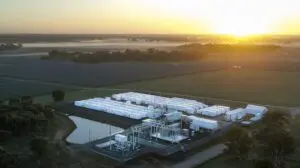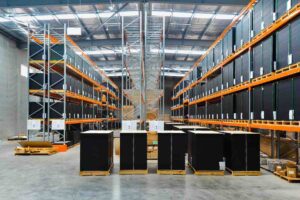ARENA has announced $864,000 in funding for energy giant AGL to develop and trial a forecasting tool for industry to create dynamic load flexing in the network.
If successful, just four large companies in the trial could free up 25MW of energy during peak periods.
The $1.78 million project will include Melbourne Airport, a warehouse and logistics company, a large supermarket, and a water utilities company – representing four key industries with ability to change their energy use.
“Unlocking flexible demand at commercial and industrial sites can free up electricity capacity at times of high demand and consume electricity when renewable electricity is abundant,” said ARENA CEO Darren Miller.
“This will help us create a truly smart, adaptable and efficient energy grid.”
If scaled up to the four industries overall, AGL and ARENA suggest the flexible capacity could be approximately 385 MW of power.
During the trial, the four companies will be given software that will allow them to see a forecast for energy prices (from very low up to very high) at 30 minute increments.
This is based on date from weather forecasting as well as prior demand history. The AGL team will start the trial next year, and will share findings in mid-2025.
However, the most important part of this trial is not the technology, but whether the four companies will be able to effectively change their behaviours with minimal issues to both the company and the customer.
With large industries, it’s not as easy as turning appliances off during peak energy periods, but small changes to timings could make a large difference to the grid, particularly when prices are very low with lots of renewables in the system, or very high, with low renewables and high demand.
“Tools like this can provide big energy users the price signals they need to optimise the use of their energy, an important step as we become a renewable energy superpower,” said Assistant Minister for Climate Change and Energy Jenny McAllister.
“Small changes to energy usage by individual companies can make big differences by easing pressure on the grid, increasing the availability of renewable energy and putting downward pressure on energy prices.”
For example, the warehouse company might adjust the temperature of their freezers to use more energy when the grid is full of renewables and the energy is cheap, but use less energy when there’s high demand.
This is also an option for water utilities, who may be able to pump water a few hours earlier than normal when prices are cheaper, without the end users noticing any difference.
Both supermarkets and the Melbourne Airport are large spaces that use air conditioning throughout the building. The trial wants to see if it’s possible to turn the temperature down slightly when energy is cheaper, and use less air conditioning later in the day when costs go up.
“This trial marks the first step in AGL developing a load flex product for our commercial and industrial customers and demonstrates our commitment to helping our customers decarbonise the way they live, move and work,” said AGL Chief Customer Officer, Jo Egan.
“Flexible demand projects like this enable AGL to develop our technological expertise in harnessing renewable energy while also exploring novel ways to reduce customer costs. We look forward to sharing the knowledge of the trial with ARENA and our participating partners to optimise the transition to renewable energy.”










